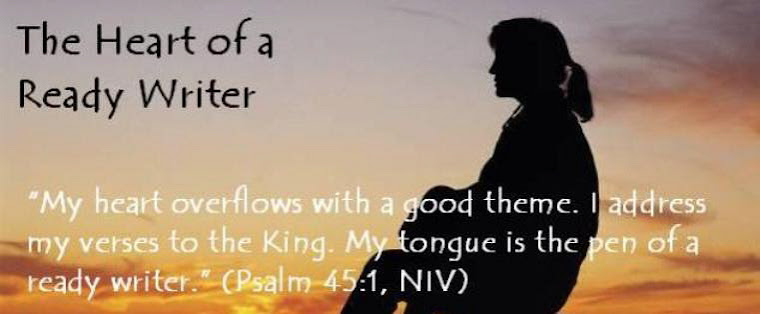As a visually oriented person, I especially love the Bible
passage that recounts Israel’s victory over the Amalekites at Rephidim in the
Sinai region. (It’s
found in Exodus 17:8-16.) Moses sent Joshua and his men out to
the battle. Then Moses took Aaron and Hur up to a nearby hill to observe the
scene. When Moses held his hands up, Israel had the upper hand in battle. When
he lowered them, they began to lose. So Moses kept his arms up.
Eventually, Moses grew tired. Maybe his arms were sore from
striking the rock at Horeb with his staff earlier (in the same chapter), when
the Lord sent water from the rock to answer the people’s complaints of thirst.
As Moses grew fatigued, Aaron and Hur stood on either side
of him and held his hands up for the entire day. And Joshua’s men triumphed for
Israel.
The lesson seems straightforward. Hands up meant victory.
Hands down led to defeat. Hands up again, and they won the day. Maybe God was
trying to paint a picture for all of us to grasp this truth of faith.
Taken out of context, this may seem like a tricky topic to get our arms around, depending upon our denominational persuasions.
I’m not going all sectarian here. I’m not claiming one form
of worship is more noble than another. In fact, I’m just the sort to put my hands
down, if someone stands up and instructs the whole congregation to throw them
up in the air. (Hey, isn’t that sort of like arm-twisting?) On another
occasion, I might spontaneously lift ‘em up.
We praise God in all
sorts of ways, don’t we?
- Hands raised or hands folded?
- Chin up or head bowed?
- In song or in silence?
- On our feet or kneeling on the ground?
- In devotion or in deed?
- Solo or corporately?
Maybe we’re asking
the wrong questions here.
Isn’t the One we worship vastly more valid than the many
ways we feebly express our adoration and awe of Him?
However we honor our great God, the gist is great. Praising the
Almighty One is a powerful thing. Because God is powerful. He is Jehovah Nissi.
The Lord is our Banner.
When we raise our arms to Him, figuratively or literally,
are we not actually saluting the one who bids His heavenly armies to act on our
behalf?
Moses had trouble keeping his hands up before the Lord. I
gotta admit it: I draw some comfort from that. Moses, the famous and highly
revered patriarch, needed a couple of friends to bookend him and lend their
strength.
It wasn’t that he didn’t believe. But he sort of ran out of steam
after a while.
Oh, I have been
there.
Several weeks ago, I stumbled in the woods and broke one of
my arms. The orthopedic surgeon put an extremely tight cast on it, with an aim
towards totally immobilizing the bone. Unfortunately, that meant it grew pretty
snug when the arm swelled, as it was wont to do. What was the solution? If I
held my arm up over my head, the swelling eventually subsided, and I found
relief from the pressure.
At the same time, I've needed (and learned to accept) a fair amount of help to lift and carry and push and pull and fasten and open and tie and untie and otherwise accomplish all sorts of mundane tasks. I've appreciated each person who gave me a hand during this season.
That experience brought me right back to Moses and Aaron and Hur and the Amalekites.
That experience brought me right back to Moses and Aaron and Hur and the Amalekites.
Sometimes the
solution is pretty clear.
Let’s raise the banner, honoring Jehovah Nissi. Instead of wringing our hands, we can raise our hands and hearts to the One who has already proven His triumph. And we can help each other to keep up the praise.
Watch for
the victory. It’s close at hand.
“And Moses built an altar and called the name of it, The Lord Is My Banner.’” (Exodus 17:15, ESV)
Image/s:
Adapted from public domain artwork
and
Victory O Lord
by John Everett Millais
19th Century
Feel free to follow on GooglePlus and Twitter. Don’t miss the Heart of a Ready Writer page on
Facebook.




No comments:
Post a Comment